Everyone has learned about the CSO sector in a different way and at different periods in their lives. Someone still has no idea what kind of sector it is, where it comes from or what it is busy doing. We dedicate this material to all the civil society organisations in Belarus and thus we express to them our gratitude, support and affection…
Do you know that the term «a non-governmental organisation» was for the first time ever mentioned in Art.71 of the UN Charter in 1945? An NGO is any organisation, which is independent from the government and is a non-profit one.
The non-governmental organisations (NGOs) are often referred to as non-profit organisations (NPOs), civil society organisations (CSOs), charitable organisations, member organisations or the third sector.

Svetlana Zinkevich
Director, Office for European Expertise and Communications, non-formal education trainer. 25-year third sector work record.
– Speaking about Belarus, I believe we have never had a third sector heyday. We always rise a little bit to be again pointed out to our proper place to be taken.
However, the fact is that some great changes have happened in our country thanks to the NGOs, like changing laws or new services and activity spheres appearing, such as women’s rights protection or human trafficking countermeasures.
It is true that it has been achieved in cooperation with the government agencies, but the civil society organisations themselves have always served as an engine. These were exactly the NGOs to make arrangements for their own and government specialists to go abroad for practical training and to bring back home to Belarus other countries’ experiences, to organise meetings between providers and the government agencies or to train the mass media how to cover these topics correctly.
We are in need of a Recognition Board for the organisations that have brought about some incredible changes in the social, cultural or environmental areas. Regretfully enough, no one ever speaks about it. Merely, from time to time a quiet acknowledgment may be muttered by some Ministries.
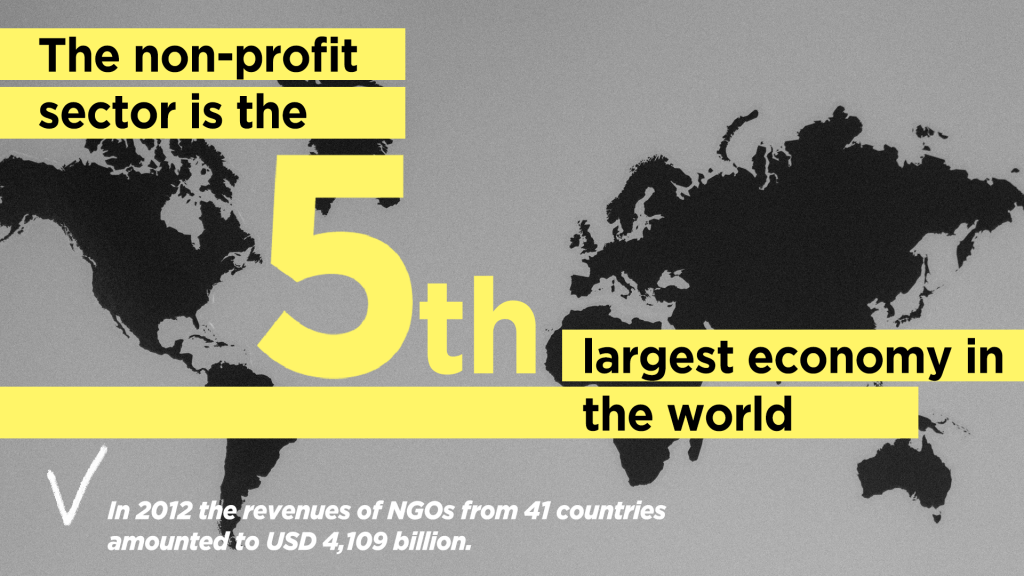
Very little is said or written about the non-profit sector’s contribution to our country’s development. In the first place, because of the anecdotal evidence that, allegedly, «the contribution is not sufficiently significant to deserve a serious attitude». But the available evidence proves the opposite.
A webinar entitled «Assessment of the non-profit organisations contribution to the economic development» was held on 19 May 2020, which showcased some research conducted by Professor Lester M. Salamon et al., who had proved that the NGO sector made a considerable both social and economic contribution to the public wellbeing. You can get more information about it on the website.
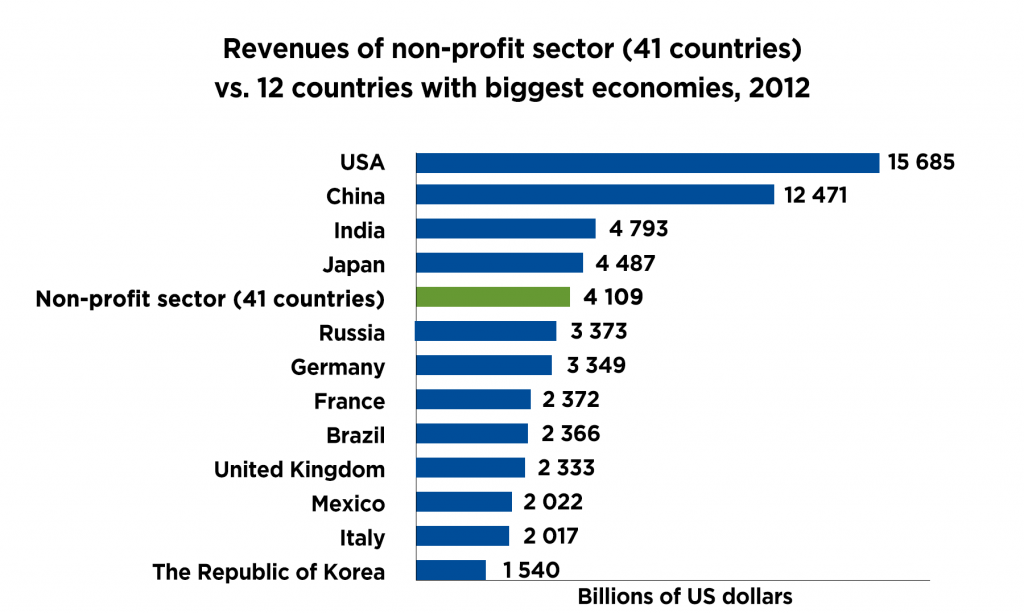
Non-profit organisations are legal entities, which may be founded to pursue social, nature conservation, charitable, cultural, educational, scientific or managerial objectives, or to protect public health, develop physical culture and sports, meet spiritual or other intangible public needs, or to protect the rights and legitimate interests of individuals and entities…
Art. 46 of the Civil Code of the Republic of Belarus
7 December 1998 No.218-3
In general, what are the NGOs for?


Svetlana Zinkevich
The main idea is to implement and defend people’s interests, if or when needed. The interests may be widely different. Sometimes it is about the wish to address an issue, e.g.: children’s hemophilia (a grave hereditary disease, – Ed.). And then the parents and experts unite in order to help each other, to protect themselves and their children, or to promote their interests.
While otherwise people join to follow their interests, e.g.: environment, sports or human rights. Everything depends on what a specific group needs or is interested in.

Voĺha Smalianka
Director, Legal Transformation Centre (Lawtrend), lawyer.
Over 20-year third sector work record.
– Uniting is inherent to humans and it cannot be denied to them. There are very many goals that make people unite. I would like to single out a few basic ones.
Addressing issues that no-one addresses
The civil society organisations often fill in the niches or gaps that the government is unable of coping up with because they are low priority ones or else are ignored.
The social, charitable and human rights organisations seek to address some problems faced by the vulnerable groups, such as persons with disabilities, LGBTQI+ community, children with grave diseases and families with such children, persons living with HIV, people using drugs or women and children who have survived violence. It is a long list to enumerate.
One such example is represented by the Genome organisation. It fought for many years that Belarus should begin treating children with the Spinal Muscular Atrophy (SMA).
And thanks to the Office for the Rights of Persons with Disabilities Belarus has signed and ratified the Convention for the rights of persons with disabilities. It was an incredibly important step, because now the persons with disabilities are not about those who are in need (and who are to be treated exclusively from the paternalist perspective), but about those who enjoy their rights. That is to say the people with disabilities have become equal members of the society and, ultimately, become visible and noticeable.
Many entities set for themselves an objective to achieve systemic changes in addressing these or those issues.
Public monitoring
It is about some civil society organisations providing their oversight for newly adopted laws or regulations to meet international standards, national commitments of societal needs. They monitor observing the civil rights and freedoms.
E.g.: monitoring the condition of the people who have found themselves in a difficult existential situation, or got to prison, or to a care house. To be true to life, it is hardly implementable in Belarus, since the majority of such institutions are closed for public monitoring.
The third sector is an additional check-and-balance system in the country.
Changing the world
A third sector engagement, as a rule, is sought after by enthusiastic individuals, who are prepared to change the world. It serves as a kind of social innovation school. While having a vested interest in and a need for self-fulfilment, people are ready to invest their time and knowledge into something new. The products developed in the third sector are subsequently used by businesses and government agencies.
Protection of specific individuals
Now the topic is extremely relevant in Belarus: protecting the rights and interests of the persons who have encountered the government mechanisms pressure. And, despite all defamation attempts, on the one hand, people see their own needs escalating and, on the other hand, confidence in the human rights organisations is on the rise.
Why the sector is «third»?


Svetlana Zinkevich
– The first sector is about the government. It means making some decisions that affect all the people, distributing common resources collected as taxes or about obeying the laws. The second sector is about businesses, and a business’ major task is to make profit. Well, and the third sector is directly what we refer to as civil society organisations set up by people to address any issues, implement ideas or defend interests.
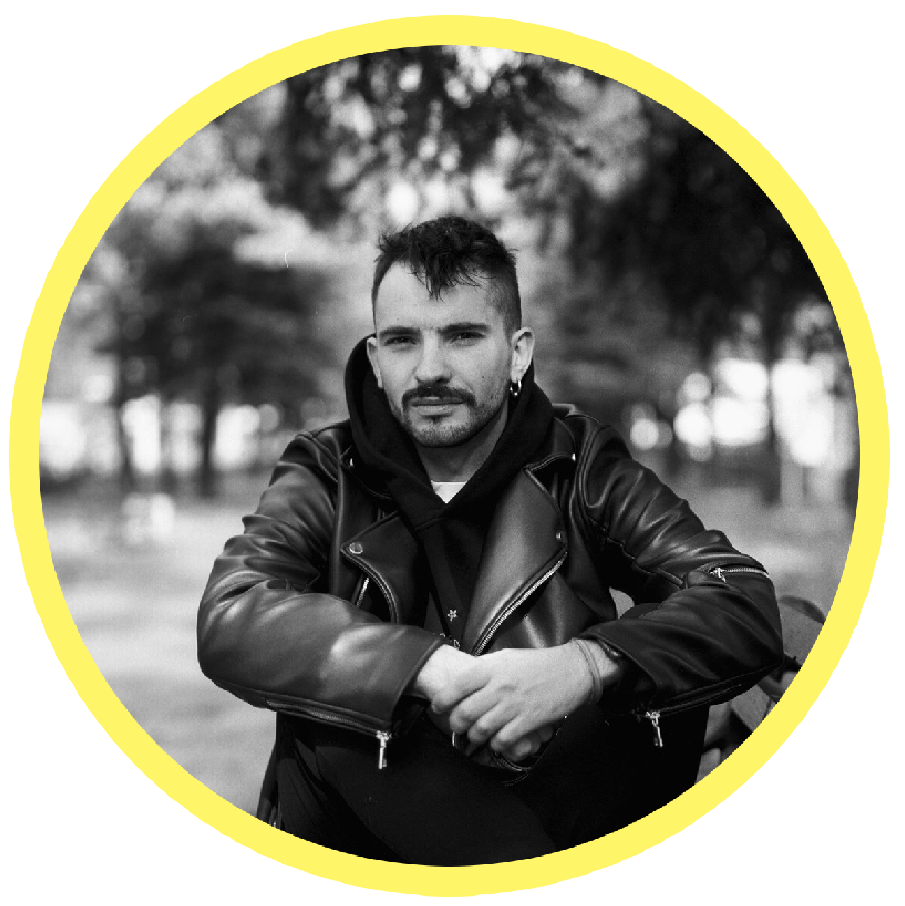
Nick Antipov
Co-founder,
MAKEOUT gender and sexuality project,
LGBTQ+ activist, Obama Leader.
– I started my activism at 11 years of age, when living with my mother at municipal residential facilities. As a kid, jointly with other children living on our floor, we made up our mind to perform together good deeds, rather than just hanging around together. An idea struck us to save a kitten from the house’ basement room. We founded a children animal saving unit, asked the facility supervisor for a key and went out on a search mission.
We did save the kitten, and I brought it home to me. Subsequently, it grew up to become a member of my family, lived for many years and died two years ago.
This is a story how activism came to my life. This way I understood for the first time that I was in a position to take care of somebody else, too. The third sector and activism for me are about responsibility in a situation of uncertainty and a way forward to change the world for the better.
No sustainable changes can happen without NGOs or without the civil society. Politicians may come and go, movements may replace each other, repressions may be initiated or new political regimes installed.
.
“ But in reality the society changes thanks to the
civil society organisations.”
.

Hanna Aheyeva
Programme manager, Office for European Expertise and Communications,
non-formal education trainer.
– The third sector for me is about values; about the people I am close with and about the wish to make the world a better place to live or about the human rights. Besides, it is about making a comfortable living for all kinds of people in the world.
The society is so structured that far from all the people can be made part of it. Yet, the NGOs seek to engage ever more persons in addressing outstanding issues; to prevent people from thinking like this: «I am a minor person without consequence and cannot change anything». Just the other way around…
“ I am a human being and can change a lot. ”
– The funniest thing is that ever from our primary school the social sciences have taught us just about the two sectors: i.e. the governmental and the business ones. No-one cares to tell us anything about the third sector, although almost all of us have been members of the pro-government youth organisation, the Belarusian Republic’s Youth Union; however, it has never associated with a civil society organisation.
How many NGOs are in Belarus?


Voĺha Smalianka
– Speaking about the terminology, it is way better to use the term «civil society organisations». Public organisations or non-profit organisations refer to their official registration form. But Belarus also has a host of unregistered civic initiatives, which do some incredibly important things.
The public association and foundation registering situation in Belarus is a very challenging one. We do have a ban imposed on activity performed by any unregistered entities; although it runs counter the international practices and standards. E.g.: Guiding principles on freedom of association and the International covenant on civil and political rights (Belarus has ratified the Covenant, – Ed.).
Nonetheless, Belarus has an abundance of initiatives that enjoy an unregistered status, but still help in addressing local or regional issues. E.g.: some residential block initiatives, which seek to beatify a courtyard, repair benches or organise a neighbourhood festivity. And we should keep them in mind. Belarus has several forms of legal entity’s incorporation with regard to non-profit organisations: public associations, international public associations, Republic’s public associations, local public associations, institutions, foundations, unions and societies.
A Public Association means a voluntary congregation of individuals uniting based on their shared interests for a joint enjoyment of civil, social, cultural or other rights.
Law on public associations
4 October 1994 No. 3254-XІІ
– How many NGOs does Belarus have? We are unable of specifying their total quantity. Yet, there are some publicly accessible statistical data on public associations: they total slightly above 3,000. Besides, Belarus has about 300 foundations. Another crucial thing to be kept in mind is that quite a few non-profit organisations are being founded nowadays in the form of legal incorporation, which is referred to as institutions. However, we are denied access to the statistics on non-governmental not-profit institutions.
By way of comparison, the Czech Republic has more than 30,000 non-profit organisations, and the country is close to Belarus in terms of its population size.
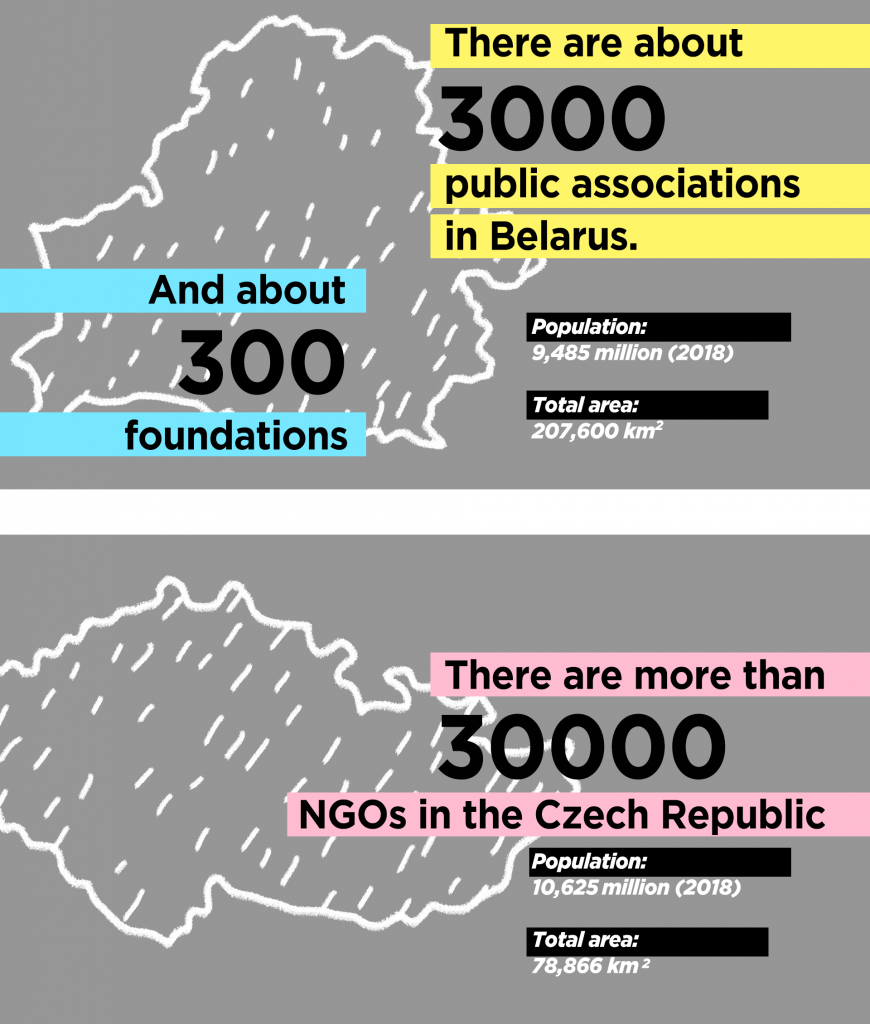
– When people unite, they learn how to address their problems and learn how to help. A vivid example can be quoted, when during the first wave of the COVID-19 pandemic Bycovid19 initiative appeared to assist physicians and hospitals. It was accompanied by a host of other minor initiatives, too. At that moment in time, they replaced the government and provided personal protection equipment to the healthcare institutions or helped the vulnerable groups.

Nick Antipov
– We registered the MAKEOUT in 2018 and spent more than 18 months to achieve it. We had experienced 9 prior failed registration attempts. The fact that we have succeeded in registering our organisation is not our achievement alone, it also means a major LGBTQ+ movement’s asset acquired within the latest 20 years.
The previous registration attempts have failed because of the authorities’ persecution.
Today’s situation is a very complicated and vague one. But the desperate times require some desperate actions. Some of the organisations will go under, unable to adapt to the ever changing world or the Belarusian context.
Although I believe that new and stronger organisations or initiatives will spring up.
For Belarus registration of entities representing the LGBTQ+ community’s interests and rights is an existential necessity. Otherwise some people might be simply overlooked. At such moments it is very easy to dismiss them by saying: «ok, you do not exist».
How do NGOs get funding?


Svetlana Zinkevich
– In an ideal world, the NGOs survive on membership fees, charitable donations, government grants or crowdfunding. While foreign grants come last and are allocated for certain purposes, the purposes in question are always transparent and specific.
The NGOs alone and nobody else will be entitled to decide, whether they take part in competitive bidding or tender for a grant or otherwise. And only the entities with their missions compliant with the competition priorities can get the funding. If the mission and the purpose diverge, the entity is extremely unlikely to get hold of the resources.
The Belarus laws allow for raising membership fees or charitable donations. Today crowdfunding is, unfortunately, not available, because its major platforms, i.e. MolaMola and Ulej, have been frozen. The social enterprise is not accessible to all, e.g.: in Belarus, public associations may engage in entrepreneurial activities through founding their for-profit organisations, only.
Other countries also enjoy such thing as a social services commissioning. Yet, in Belarus it is only accessible for certain spheres, rather than for all the NGOs.
If the government gives the money, then why is it different from a government organisation?
– An NPO or an NGO (non-governmental organisation) is different in that the government does not affect any decision-making processes within such an organisation. The NGOs alone and all by themselves decide what projects or programmes they should implement. The NGOs are responsible for their target groups’ needs, rather than for the government’s needs.
The matter of the fact is who determines an organisation’s operational policies or priorities. Within the civil society organisations it is done by their members, target groups and volunteers (it is wildly different from entity to entity). The government agencies handle it otherwise: they receive instructions from the top-down.
Even when an organisation is supposed to contribute to social services commissioning, it does not make it a state-owned one. Since 2017 the NGOs have had an access to the government funding of social services or social projects in the area of socially hazardous diseases or HIV.
That is to say, a non-profit organisation may participate in a competitive bidding, receive government funding and pursue its priorities for government money.
Why does the government tend to fund programmes of non-governmental NGOs? The government is capable of providing this kind of service to the public all by itself, but will do it at a higher price than an NGO. If the service is contracted to an NGO, the service will be cheaper for the government and mean a better quality for the public.
“ People do not come to an NGO just to work, but because it is their mission. Helping people is their major purport ”

Voĺha Smalianka
– Every country has a more cautious attitude to international funding. But the best international practices do not recognize foreign aid registration principles or bans imposed on foreign aid. Any state has its reporting and monitoring systems in place to verify for what purposes the money is spent.
And it is a normal thing to do. Usually the «no go» money spending norms are applied, as simple as that. Indeed, no country is interested in financing terrorism.
The Belarusian pattern operates otherwise. Specific objectives are enumerated, for which the NGOs are allowed to receive foreign gratuitous assistance. Well, these objectives are few and far between. Besides, an organisation is supposed to undergo a complex registration procedure and a tax exemption process.
Thus, the Belarusian organisations have a very limited access to foreign financing. Moreover, they face an abundance of difficulties, while getting aid domestically from companies or entrepreneurs.
If the system in place in Belarus were to be simplified, freer access to financing could contribute hugely to the development of education, healthcare or any other sector. Besides, the funding could save the state budget finances by closing the gaps that the government has no time to attend to, yet.
This is exactly why many countries have introduced their bonus systems for the NGOs, e.g.: they are tax-exempt.

Taćciana Halubovič
Mother of Vania, a person with an autism spectrum disorder (ASD).
Jointly with other parents, she has set up the
Good deed. Help to autistic people, Public Association
– At the critical pandemic period, we as an organisation could only survive thanks to public donations. I would hate to diminish the business influences. When businesses prosper and make money, they provide support to social projects. But today the companies, which used to support us, are undergoing a relocation process (in this context it means the businesses moving to another country, – Ed.)
Our association receives no support from the government. Moreover, it gets no bonuses, either. We as a social organism are forced to pay taxes on an equal footing with businesses. It means that when we want to employ a teacher to work with autistic children, we are supposed to pay all the taxes. But where we are we supposed to take the money for tax payments, if we don’t make it in any way?
What if the NGOs disappear (are banned)?


Svetlana Zinkevich
– It might seem at a casual glance that nothing will happen, but that is not true. It’s the government that will have to handle addressing all the problems faced by all members of the public without any exceptions.
The government will be flooded by such a wave of dissatisfaction, which is hard to predict. It will have to hire the people, who used to be self-employed before.
By way of an example, let’s say some public associations run mutual support groups for alcohol addiction recovery or for people living with HIV. If, all of a sudden, the groups stop their work, the people will be left all alone to face their problems. Their next step will be turning to the government, because then exactly the government will have to address their problems.
“ If people are unable to self-organise or if they are
disallowed to pursue their interests,
people go out to air their grievances ”
– In order to address all these issues, the government will have to look somewhere for resources and specialists. Indeed, the NGOs raise funds from international foundations and collect public donations; and if the government under the old set-up used to make savings, now it will have to procure the money from some kind of source.
Further on, there is a question arising as to the competences and qualities of any services provided. The NGOs deploy international practices, technologies and expertise. It’s exactly their activists, who often bring into the country innovations or problem-addressing insights, further develop them and adopt jointly with the government.
E.g.: daytime stay centres for persons with disabilities, work-shops for persons with disabilities, independent living or jobs for persons with disabilities – all of these have been enabled thanks to the NGO influence, an astonishing contribution being made therein by the Public Association Belarusian Association for Assistance to Disabled Children and Young Disabled Persons (BelAPDIiMI).
Ideally, a broader picture should look the following way: an NGO comes with an idea and pilots it, the government adopts it, provides its funding and support, and transforms it into an accessible system for all members of the public in the country.
The third sector for the government is an innovator and its problem-addressing assistant. And, among other things, someone who helps in a rational resource use and swift response to the public needs.

Taćciana Halubovič
– The government agencies should always seek to establish links with the civil society entities and vice versa. In our case these are parents’ organisations.
Issues can only be addressed thanks to such links. Then we shall not have to invent the wheel and do monkey business, a business for business’ sake.
The parental community has accumulated for many years an amazingly rich body of knowledge and practices. And we are happy to share them with the government.
The parental communities serve as a piece of litmus paper, which helps to see in practice, if a law works and if it does, then how. We are our children’s barristers, who assist them in enjoying their rights.

Hanna Aheyeva
– There is no way to prevent the people from uniting in line with their interests, wishes or needs. It’s just the way a human being is structured. Let’s imagine all the NGOs are wound-up today, then in a year’s time small initiatives will germinate and in another couple of years they will take the shape of organisations again; the third sector will be recreated.
In fact, the government benefits from people uniting. In this case the society will be able to negotiate and solve its problems. Civil society development features high among the government’s functions.
I struggle very much to speak about the NGO development. We live today through an extremely challenging period for the civil society organisations. But the conditions prevailing for the civil participation development are much better now.
World NGO Day
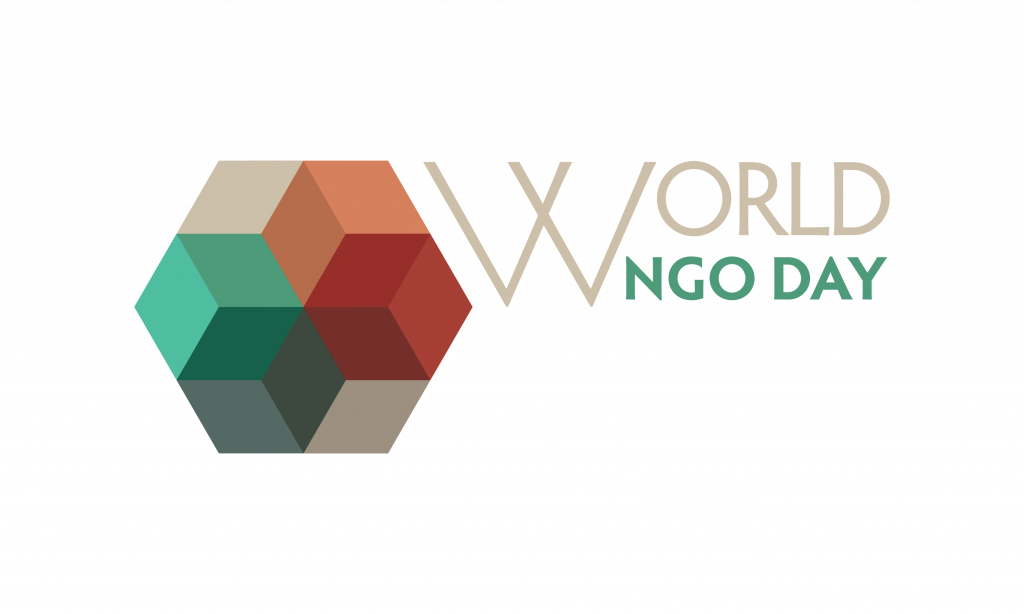
A UN resolution quoted on 27 February 1950 for the first time ever the notion of ‘an international non-governmental organisation,’ which was tantamount to the NGO sector recognition.
Establishing the World NGO Day was initiated in 2009 by philanthropist Marcis Liors Skadmanis. In 2010, it was recognized as an official festive date by 12 Baltic Sea Region nations, Belarus included.
The World NGO Day is an important event, which demonstrates how the non-governmental organisations cherish such values as freedom of speech or protection of environment, wildlife, cultural heritage and the humanity’s future.
The day is intended to inspire an active human participation and to promote a closer symbiosis among the NGOs, the government sector and the businesses.
The Office for European Expertise and Communications sends herewith its congratulations to every civil society organisation and acknowledges their contributions and their day-in-day-out reliable operations. Together we can achieve all we want!


